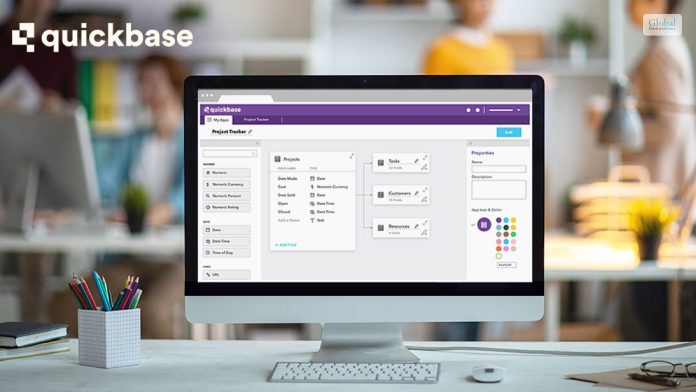The Importance Of UPS Maintenance In A Data Centre

In the contemporary digital landscape at the onset of the 21st century, data centers stand as the backbone of modern information technology infrastructure. These particular types of facilities house an intricate array of servers, networking equipment, and critical data repositories.
All these play a pivotal role in enabling seamless communication, data storage, and computational capabilities across diverse sectors in Australia. Among the intricate web of technologies that comprise a data center, one particular component holds paramount importance: the Uninterruptible Power Supply or, as we popularly know, the UPS system.
You should continue reading this informative article if you want to learn more about the significance of UPS maintenance within a data center context, emphasizing its role in safeguarding operations and fortifying business continuity in the future.
What Are Uninterruptible Power Supplies?
UPS or Uninterruptible power supplies offer backup power, which aims to safeguard equipment from damage. Especially when there is a grid power failure. A UPS is any device that can power equipment instantly whenever there is an unprecedented power failure. These differ significantly not only in their design but also in their functionality.
Computer systems, data servers, and industrial settings make use of UPS systems because these protect equipment. But for the smooth functioning of UPS, one must know the right strategies to maintain it. These systems are used not only in business settings but also in laboratories and while handling medical equipment.
A Few Components Found In UPS
Let’s take you to a bit of technicality here. Just like a data center is nothing without its tremendous data, a USP is nothing without its components. Here are a few important components that one might find inside a UPS:
-
Rectifier
One of the first things needed is a rectifier, which transforms the AC power input into DC. Further, the DC power must be used for feeding an energy storage system.
-
Energy Storage
Next comes the energy storage equipment that stores all the converted energy from the rectifier. It can be stored in flywheels, supercapacitors, or batteries.
-
Inverter
Finally comes the inverter that seeks the rectifier and converts the DC power into needed AC power. The latter is used by the load for multiple purposes.
Different Types Of UPS Available
If you are thinking about which kind of UPS you must opt for, here is a small list that I have made:
Offline/Standby
This basically has two modes in it. When it is completely operational, the input power gets directly fed to the output load. No filtering takes place here. However, the use of a solid-state switch remains prevalent for transferring the load directly to the battery source as soon as it detects power loss.
Double/Online Conversion
Secondly comes the online/double conversion power electronics, which is also a significant addition. Here, the battery system always remains connected and rarely needs to switch to the backup source.
Reasons For Maintaining UPS In A Data Centre
In order to mitigate the risks of data loss, a UPS should continue running efficiently. It will take over exactly where the power supply went off when there is an outage or surge. This ultimately ensures that your business is still operational, along with secured data. Here are a few reasons why it is significant to maintain UPS in data centers.
Ensuring Continuous Power Availability
At the core of its functionality, a UPS battery system serves as a resilient shield against power interruptions and failures that can disrupt the operations of any business. In the world of data centers, where even a fraction of downtime can cause serious repercussions, maintaining continuous power availability is of the utmost importance.
A UPS system acts as a bridge between the primary power supply and the critical equipment it serves, stepping in instantaneously to supply power in the event of a power failure or voltage irregularity, which can cause serious damage to computer and networking infrastructure.
As a result, UPS maintenance must be carried out to ensure that this transition from grid power to UPS-generated power transpires as seamlessly as possible. Regular inspections of components, such as batteries and voltage regulators, must be carried out in order to identify potential vulnerabilities before they manifest as operational problems.
By mitigating these potential issues in advance, UPS maintenance is able to bolster the capacity of data centers to weather power-related challenges and affirms uninterrupted data access at all times, reinforcing the operational reliability of the facility.
Safeguarding Data Integrity
In addition, the realm of data centres is synonymous with the preservation of invaluable digital assets, from confidential business data to vital customer and supplier information. Power fluctuations, surges, brownouts, and blackouts pose a considerable threat to the integrity of stored data.
Moreover, unforeseen power disruptions can result in data corruption or loss, which could cause serious problems for the business, undermine the core purpose of the data center, and inflict irreparable harm to business operations as well as the reputation of the company.
Mitigating Financial Losses
Finally, the repercussions of data center downtime extend well beyond the problem of potentially compromised data integrity. These problems could potentially encompass substantial financial ramifications as well as legal issues if data security is breached.
Businesses that are reliant on data centers stand to lose not only data but also potential revenue, customer loyalty, and brand reputation. The unpredictable nature of power disturbances further accentuates the need for robust UPS maintenance practices. Their implementation is urgent in a data center at all times.
Therefore, to sum up, the importance of UPS maintenance within a data center environment is subject to importance. As far as its pivotal role in bolstering operational continuity, preserving data integrity, and shielding against financial setbacks is another concern.
Conclusion
Hence, it must be safe to say that without an efficient UPS system, it is nearly impossible to maintain and streamline a data center. It is the heart that ensures all computers are functioning smoothly.
With this, let us bring a subtle end to this article. Thank you for reading. Share your comments below, and let us know what you think.
Read Also:















